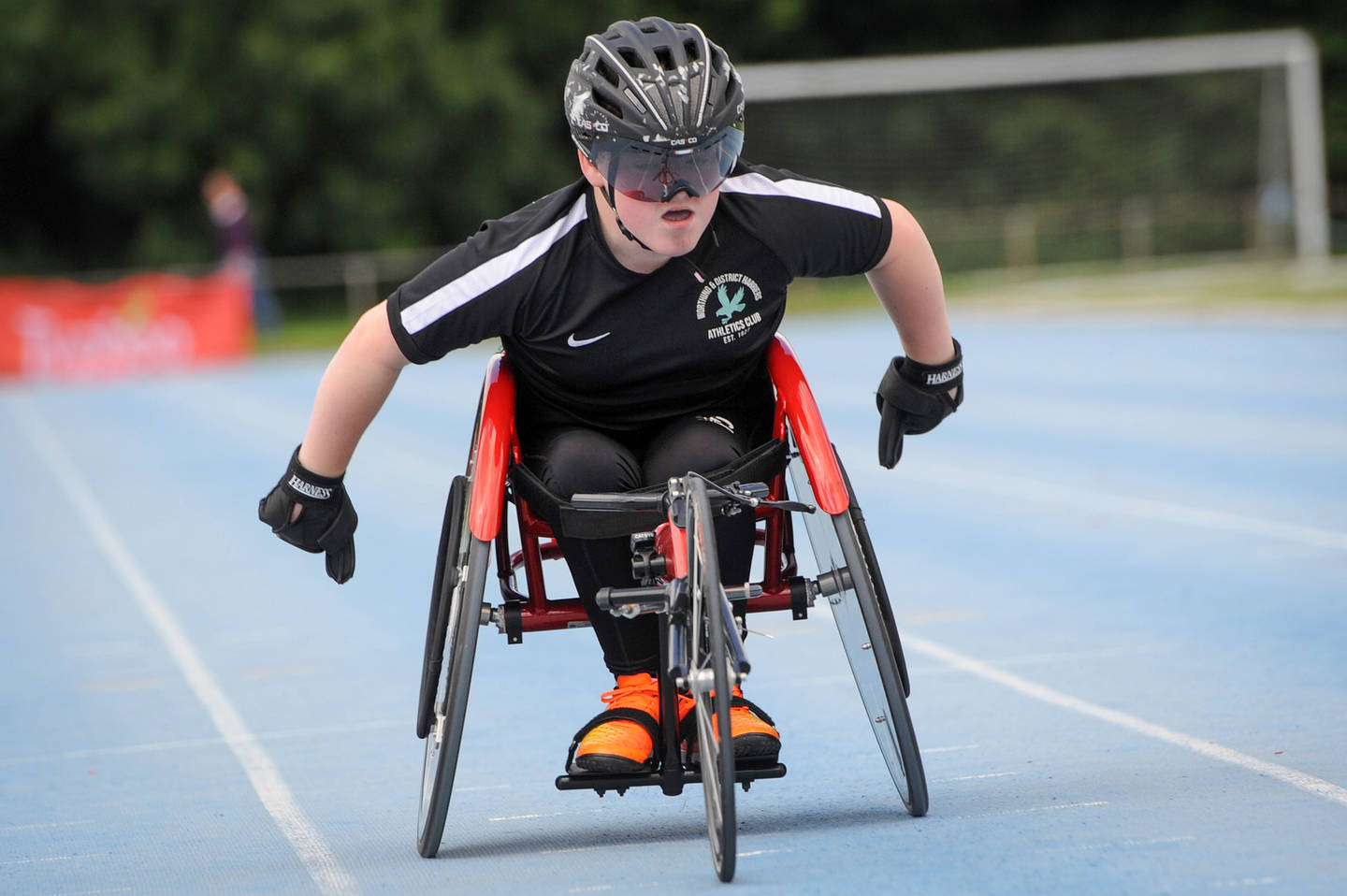Blog: Fighting for fairness on International Day for Disabled People
Here our Chief Executive, Barry Horne, recognises International Day for Disabled People. He reflects on a year like no other, while recognising the ambition and passion within our membership and partners. He also outlines the significant work still needed to achieve fairness for disabled people in sport and activity.

Today is International Day for Disabled People (IDDP), a day celebrated on 3 December. It’s a day that promotes disabled people’s rights and wellbeing, and increases awareness in political, social, economic, and cultural life.
Every year, the day is set firmly on our Activity Alliance calendar. We like to shine a light on the tremendous work taking place to improve opportunities in sport and leisure. But we cannot ignore the fact that we are a long way off achieving true fairness.
As 2021 comes to a close, I wanted to reflect on the last 12 months and draw upon our learning to thrive in 2022.
The COVID-19 pandemic had a disastrous impact on the nation’s activity levels. Before the pandemic we had some cause for optimism, with activity levels among disabled people on the rise. In February 2021, our second Annual Disability and Activity Survey revealed the stark impact of this crisis on disabled people’s activity levels. Evidence shows disabled people’s lives have been the hardest hit by COVID-19.
The pandemic has made disabled people feel that they do not have the opportunity to be as active as they want to, compared to non-disabled people (29% vs 44%). A YouGov poll released with our new strategy revealed more. More than 7 in 10 disabled people said the coronavirus pandemic had made sport and physical activity less fair for disabled people. Even when facilities were able to re-open, many disabled people lacked the confidence to return.
The pandemic may have stalled the progress we’d collectively made, but it also made us more determined than ever. Activity Alliance will not rest until we see fairness for disabled people in sport and activity.
Our strategy, Achieving Fairness, published in May, shows how we will get there. Our two goals are to change attitudes towards disabled people in sport and activity, and embedinclusive practices across organisations.
Sport England’s new strategy, Uniting the movement backs our vision for fairness. It puts tackling inequalities at the heart. With this comes greater responsibility for organisations and a need to prioritise disabled people in its investment.
This gives me even more reason to be optimistic as we head into the new year. But we must use this moment in time to reset, rethink and readjust things for the better. It is a chance to be more thoughtful and innovative.
We need to ensure that 14 million disabled people in the UK, that’s one in five of us, are not forgotten. Nobody should miss out on the huge physical and mental health benefits of being active.
IDDP’s theme this year is “Disabled people’s leadership and participation toward an inclusive, accessible, and sustainable post-COVID-19 world”. This has never been more important for a sporting world coming through a pandemic and working towards recovery.
Our insight and evaluation show when disabled people are part of the decision-making, leading the movement, it leads to greater participation. Therefore, we must ensure that more disabled people are involved as leaders at all levels.
That’s why we greatly value disabled people’s authentic voices at Activity Alliance. Many people with lived experience are among our high-performing board and staff team. We believe in the disability rights mantra, “Nothing about us, without us”.
In July, we responded to the Government’s National Disability Strategy. We welcomed sport and activity’s recognition within it but were disappointed that it failed to present the huge mutual benefits that being active brings to all policy areas.
Throughout this challenging year, we have heard many disabled people talk about ‘system failings’. Significant systemic barriers are holding disabled people back from being active citizens in every field. The push for fairness in sport and leisure is not standalone. We need education, transport, communities and so many more policy makers to play their part. In 2022, we will continue to push for a fairer system.
The summer Paralympics captured elite sport at its finest. We all watched and celebrated seeing ParalympicsGB go for gold, knock seconds off records and return home triumphant. What an achievement to finish second in the medal table with a grand total of 124 medals.
But it also reminded us of the huge gap between being a disabled participant looking to take part in their local gym, and a super talented athlete competing for gold. Ensuring every disabled person can access activity must be the focus.
In 2022, we are looking forward to creating more opportunities, amplifying more voices and developing more innovative and accessible ways to enjoy being active.
As the leading voice for disabled people in sport and activity, we know that there remains a long journey to ensure there is fairness for disabled people in sport and activity. The team is ready for 2022 and the opportunities it brings.